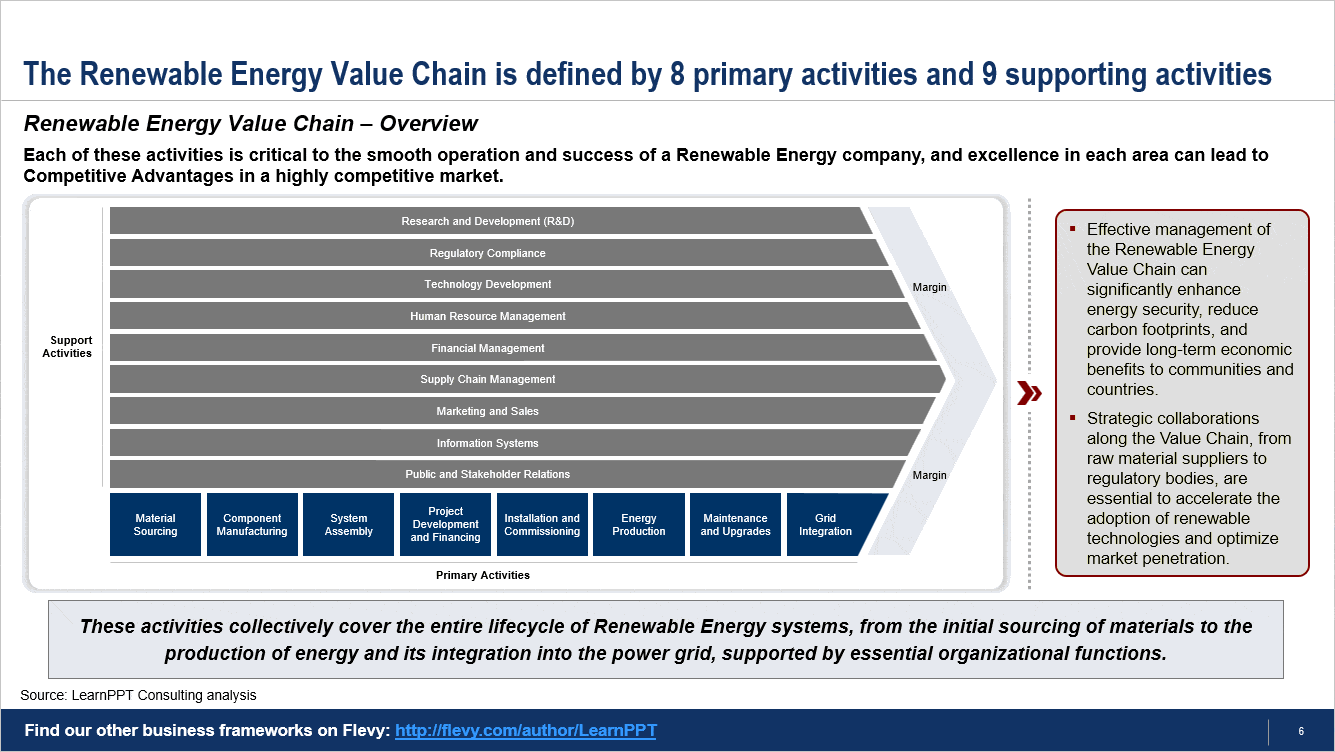Editor's Note: Take a look at our featured best practice, Solar (PV) Power Plant - Project Finance Model (Excel workbook). In the ever-evolving landscape of renewable energy and climate action, harnessing the power of solar energy is both an environmental imperative and a strategic move to meet the growing demand for electricity. Photovoltaic power stations, often referred to as solar parks, solar farms, or solar [read more]
* * * *





